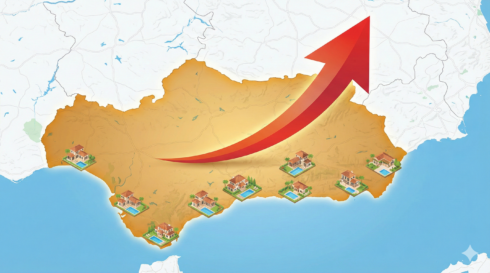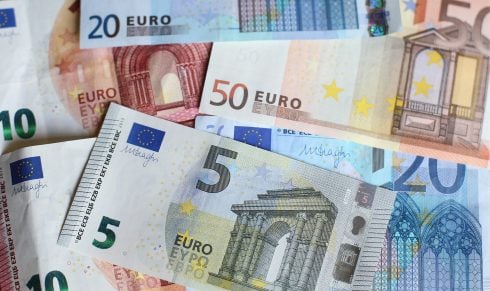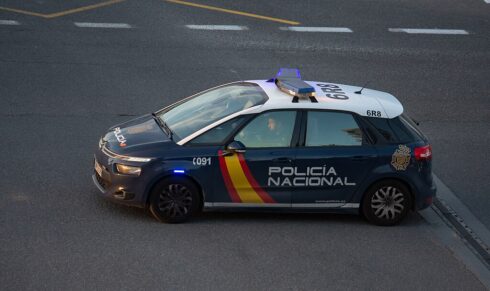THERE was never any question where we would aim for.
It was my university’s hitch hike for charity and it began exactly 20 years ago, during the week the Berlin Wall started to fall.
A precursor to my future career as a journalist, there was only one place in the world that I wanted to be.
Just 20 years of age (yes, I am now 40) and half way through a degree in Geography at Manchester University, the opportunity to see this momentous world event close up had an incredible allure.
And despite a later 15-year career covering numerous big stories – including Chernobyl, the Docklands bombing and the death of Princess Diana – it still leaves a bigger imprint on my memory.
Marking the end of the ‘Cold War’ and the reuniting (or, to be fair, uniting for the first time) of Eastern and Western Europe, for an idealistic student it was a breathtaking time.
Families of West Germans, who stood by Checkpoint Charlie literally handing over wads of banknotes to total strangers as they arrived through the wall in their battered Trabant cars
So much sticks in the memory from the edgy faces of young East German border guards standing nervously on top of the wall, unsure what to do, to the families of West Germans, who stood by Checkpoint Charlie literally handing over wads of banknotes to total strangers as they arrived through the wall in their battered Trabant cars. These were incredible times.
Deeply interested in the rift between communism and fascism from studying the Spanish Civil War during my history A-level, it was incredible to think that this formidable barrier to world peace was finally coming down.
As Gordon Brown put it so well, during celebrations at Berlin’s Brandenburg gate this week, the wall had “imprisoned half a city, half a country, half a continent, half a world for nearly a third of a century”.
It’s impact was enormous with more than 239 people being shot trying to cross the wall into West Germany – the last, Chris Gueffroy in February 1989. The psychological scars of being trapped in their former communist state left a long legacy.
The lack of freedom, the spying on ‘suspect’ individuals by the Stasi secret police, the imprisonment and torture of anyone who dared to question the regime, this was a totalitarian state of the worst kind.
The wall, of course, had gone up almost overnight. One day Germans from both sides could move freely around the city. The next – August 13, 1961 – anyone in East Germany was prevented from moving by the regime of Erich Honecker.
The wall, of course, had gone up almost overnight. One day Germans from both sides could move freely around the city. The next – August 13, 1961 – anyone in East Germany was prevented from moving by the regime of Erich Honecker.
One man explained how on the day the wall went up his parents had wanted to go to the cinema in west Berlin, but he, then aged 11, had been too tired. Next morning, they awoke to the sound of tanks. In all his adult life, he had never been to the western half of his own city
But eventually, as usually is the way, the will of the people got the better of the regime.
Some 28 years, 91 days after the wall went up, it began to come down.
The unbreakable spirit of people, who dared to dream, finally came to a head on November 11, 1989.
That night, at around 11pm, the border guards finally started letting its citizens leave East Germany. By the Sunday and Monday cracks started appearing in the wall, as more and more people began to leave.
By the following weekend it was a deluge, as families of East Germans and thousands who had travelled up from Czechoslovakia too, made a dash for freedom.
It was an amazing time to be in Berlin. We had managed to get two free flights from the German Advisory Tourist Service from Gatwick to Munich, where we would then hitch a series of lifts, along the autobahn to Berlin.
While it was a few days after the initial opening of Checkpoint Charlie, the autobahns were still lined with high barbed wire fences and soldier-manned checkpoints.
On arrival in Berlin, we were amazed to find the wall still very much intact. When we tried to clamber up to get a look over, armed soldiers pointed guns at us and pushed us down.
This however, did not stop thousands of West Germans making a major frontal assault on the huge blocks of concrete, covered from top to toe in graffiti.
From dawn til dusk they chiseled away with hammers, pickaxes and shovels. Some even brought out hydraulic drills to cut chunks out of this this hated barrier.
Like French president Nicolas Sarkozy, who posted a photograph of himself on Facebook this week, my friend Guy and I bought hammers and chiselled away at the wall, arriving back in the UK five days later with souvenir chunks.
Nobody seemed to be working. Berlin was one big party town and by the weekend another rush of East Germans started heading on their first journeys west.
This flight to freedom was symbolised this week when German Chancellor Angela Merkel – who in 1989 was a physicist employed by the East German politburo – retraced her own journey across the divide. Fittingly, she was accompanied by two men who had made such a peaceful revolution possible: Lech Walesa from Poland and Mikael Gorbachev, the former Soviet leader.
“Because of your courage two Berlins are one, two Germanys are one, and now two Europes are one.”
As Gordon Brown later told up to a million Germans who attended the event on Monday: “Because of your courage two Berlins are one, two Germanys are one, and now two Europes are one.”
Yet, all is not well in Europe.
While the reunification of Germany eventually ushered in a new, larger and more powerful Europe, it had a double-edged meaning.
While millions regained their basic freedoms, various promises made to Mikael Gorbachev were never kept.
In particular, the Russian leader was promised, but only verbally, that Nato would not expand into the bases left by departing Russian troops in east Germany. Behind Nato’s eastwards expansion lay two US presidents, Bill Clinton and George Bush, who heard what the defeated former rival had to say, but went ahead with what they planned anyway.
Millions of eastern Europeans also took the promises of a bright new dawn at face value, only to pay a heavy price in unemployment, economic collapse, and social turmoil.
Despite Germany investing some two trillion euros in East Germany, unemployment and social problems are still higher in the former communist part.
It took Hungary and Poland, the richest of the countries, a full decade to recover economically from where they were when the wall came down, and that is just in terms of average GDP.
There has also been a sharp rise in racism in these former Eastern Bloc countries, a problem which has spread around Europe. Centre right governments, such as those of Nicolas Sarkozy’s in France and Berlusconi’s in Italy have made immigration a key issue, while extremist parties, such as the BNP, have gained ground in the UK.
These are worrying times, exacerbated by the worst recession for decades.
So large have been the concerns about its ongoing commitments to Europe, that in the UK both the Conservative Party and much of the media have campaigned for a referendum for the country to decide on the issue.
I have seen a horrifying disregard of European laws protecting both human rights and the environment.
In Spain meanwhile – where I have lived for approaching a decade – I have seen a horrifying disregard of European laws protecting both human rights and the environment.
So bad has been the tsunami of cement that has seen Spain’s coastlines almost completely destroyed over the last decade, that the country has become a watchword for excess. Thousands of foreigners are facing seeing their homes knocked down, despite acquiring the correct licences.
Only now are both national parties facing up to the fact that massive widescale corruption has allowed the real estate sector to steamroller its way to destroy thousands of protected green spaces.
But after the so-called Auken report into environment and human rights abuse was issued by the EU earlier this year demanding action, absolutely nothing has been done.
And that is where the European Union, as a higher authority, should have stepped in. And indeed it would have done, if a crucial vote to withhold 185 million euros of benefits from Spain next year, hadn’t been shelved last month at the final hour.
There is much speculation why this was allowed to happen, some claiming it was the Spanish government threatening to block other planned legislation. But, either way, if such blatant disregard for European laws remain unpunished, what then is the point of the EU?
After all, millions have been spent compiling, interviewing and investigating the excesses, all paid for out of taxpayers’ money.
One is left wondering what signals this sends out to the rest of Europe?
Certainly, it is vital that issues like this are addressed, particularly with the spectre of climate change likely to affect countries like Spain more than those in the north of Europe.
Either way, having seen the fall of the wall, it is vital that we Europeans, whether from the East or West, work together to solve these issues.
There is an opportunity coming up in Copenhagen next month, with the Earth summit, which will hopefully take a big step on from Kyoto.
As well as setting tough new limits on pollution, most crucially it will have to work out a way to help subsidise planned emission cuts in the developing world, which will mean all of us putting our hands in our pockets.
It is going to be painful financially and difficult socially. But if we don’t work together on this one, it is a wall that is not only going to overshadow Europe, but the whole of mankind.
Click here to read more News from The Olive Press.






Great piece! What is the writer’s name and email?
thanks jim,
tis me, jon clarke, the editor of this humble rag…
jon@theolivepress.es
Back in the 60s you could see posters up in West Germany to the effect of ‘Divided in Three – Never’ (Dreimal Verteilt – Niemals) and I think the third bit was in Poland.
I looked at the border not far from Lübeck in 1962 and saw the East German border guards in the watch towers. Awesome and gruesome. I made some hand gestures of encouragement.
Estepona Town Hall put up similar structures for the lifeguards and I nearly fell off a barstool once looking out at the beach as a Policia Local dog handler walked past with a German Shepherd on the seafront with a tower as backdrop. Déjà vu all over again.
Re “Dreimals verteilt – niemals” I too saw these posters all over north Germany on a school trip in 1964, The third bit was the former German province of East Prussia which became part of the Soviet Union in 1945. I too waved at the border guards at the border crossing near Luebeck. I’d love to have a copy of that poster but can’t find it anywhere on the internet. Can anyone help?